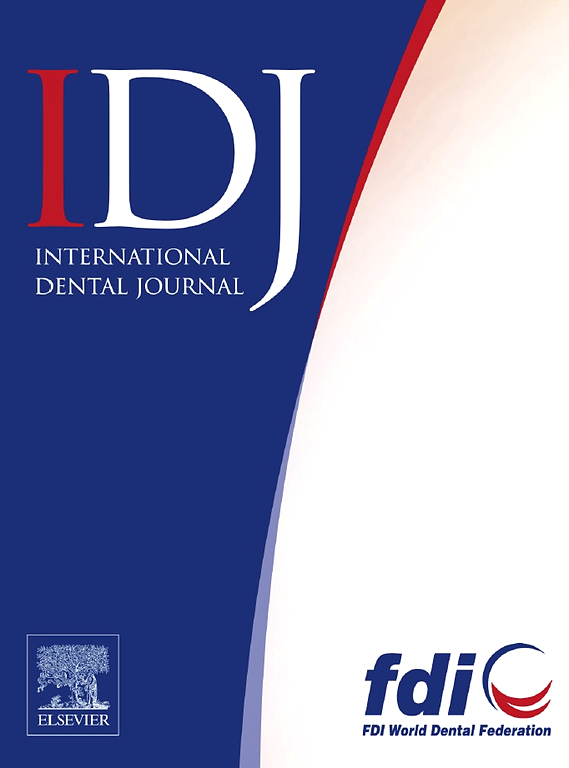Assessing the Capabilities of Generative Pretrained Transformer-4 in Addressing Open-Ended Inquiries of Oral Cancer
IF 3.2
3区 医学
Q1 DENTISTRY, ORAL SURGERY & MEDICINE
引用次数: 0
Abstract
Introduction and aims
In the face of escalating oral cancer rates, the application of large language models like Generative Pretrained Transformer (GPT)-4 presents a novel pathway for enhancing public awareness about prevention and early detection. This research aims to explore the capabilities and possibilities of GPT-4 in addressing open-ended inquiries in the field of oral cancer.
Methods
Using 60 questions accompanied by reference answers, covering concepts, causes, treatments, nutrition, and other aspects of oral cancer, evaluators from diverse backgrounds were selected to evaluate the capabilities of GPT-4 and a customized version. A P value under .05 was considered significant.
Results
Analysis revealed that GPT-4 and its adaptations notably excelled in answering open-ended questions, with the majority of responses receiving high scores. Although the median score for standard GPT-4 was marginally better, statistical tests showed no significant difference in capabilities between the two models (P > .05). Despite statistical significance indicated diverse backgrounds of evaluators have statistically difference (P < .05), a post hoc test and comprehensive analysis demonstrated that both editions of GPT-4 demonstrated equivalent capabilities in answering questions concerning oral cancer.
Conclusions
GPT-4 has demonstrated its capability to furnish responses to open-ended inquiries concerning oral cancer. Utilizing this advanced technology to boost public awareness about oral cancer is viable and has much potential. When it's unable to locate pertinent information, it will resort to their inherent knowledge base or recommend consulting professionals after offering some basic information. Therefore, it cannot supplant the expertise and clinical judgment of surgical oncologists and could be used as an adjunctive evaluation tool.
评估生成式预训练 Transformer-4 在处理口腔癌开放式询问方面的能力。
引言和目的:面对不断攀升的口腔癌发病率,大型语言模型(如生成预训练转换器(GPT)-4)的应用为提高公众对预防和早期检测的认识提供了一条新途径。本研究旨在探索 GPT-4 在解决口腔癌领域开放式问题方面的能力和可能性:方法:选取来自不同背景的评估者,使用 60 个问题及参考答案,涵盖口腔癌的概念、原因、治疗、营养和其他方面,对 GPT-4 和定制版本的能力进行评估。结果显示,GPT-4 及其定制版本在口腔癌的治疗方面具有显著优势:分析表明,GPT-4 及其改编版在回答开放式问题方面表现突出,大多数回答都获得了高分。虽然标准版 GPT-4 的中位数得分略高,但统计检验表明两种模式的能力差异不大(P > .05)。尽管统计显著性表明不同背景的评估者在统计上存在差异(P < .05),但事后测试和综合分析表明,两个版本的 GPT-4 在回答有关口腔癌的问题方面表现出同等能力:结论:GPT-4 已证明其有能力回答有关口腔癌的开放式问题。利用这种先进的技术来提高公众对口腔癌的认识是可行的,并且具有很大的潜力。当它无法找到相关信息时,它会求助于其固有的知识库,或在提供一些基本信息后建议咨询专业人士。因此,它不能取代肿瘤外科医生的专业知识和临床判断,只能作为一种辅助评估工具。
本文章由计算机程序翻译,如有差异,请以英文原文为准。
求助全文
约1分钟内获得全文
求助全文
来源期刊

International dental journal
医学-牙科与口腔外科
CiteScore
4.80
自引率
6.10%
发文量
159
审稿时长
63 days
期刊介绍:
The International Dental Journal features peer-reviewed, scientific articles relevant to international oral health issues, as well as practical, informative articles aimed at clinicians.
 求助内容:
求助内容: 应助结果提醒方式:
应助结果提醒方式:


